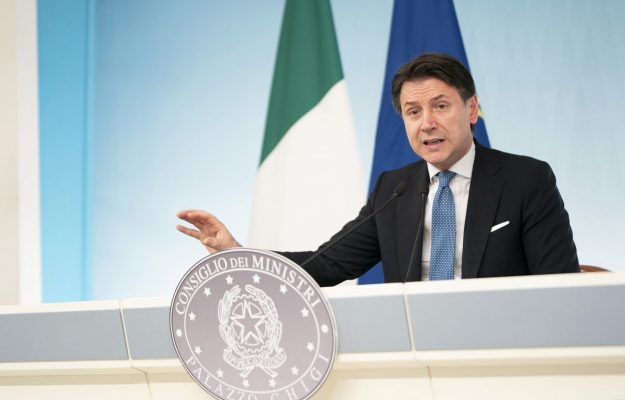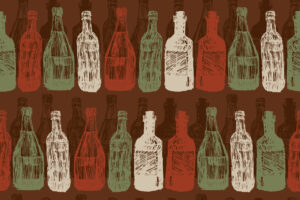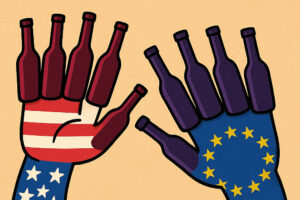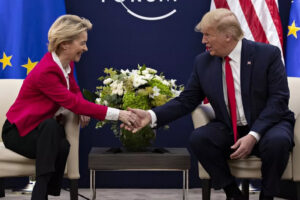Since this morning, Italy is all “red zone” to contain the Coronavirus. Nevertheless, as is obvious, goods, especially groceries, will continue to circulate freely. It was true yesterday for Lombardy (the most affected by the Coronavirus, and which is planning to close all activities with the exception of foodstuffs and pharmacies, ed) and for the provinces that were red zone, it is even more true today: “the activity of transport operators is a work requirement: the staff who conduct the means of transport can enter and leave the territories concerned and move within them, limited to the need for delivery or withdrawal of the same products”, had stressed the Ministry of Agriculture. In short, people will not suffer from hunger (the mass assaults on supermarkets are unjustifiable), and what is more, obviously, as has been said many times, the goods are not carriers of the Coronavirus. Yet, among successive decrees, lack of clarity, but also dishonesty and speculation by some people, the whole world of commerce suffers, both for real and direct causes and for surreal reasons. Like the requests for alleged certificates of “healthiness” of the goods that food and wine producers are receiving from foreign and Italian operators. Something that forces health and political institutions to reiterate that “there is no need to have a “virus free” label, because it is not that our products are different from before, there is no contagion, through, for example, wine”, as recalled by the Minister of Economic Development Stefano Patuanelli.
“From this point of view there is Foreign Minister Di Maio - added Patuanelli - who is doing an immense job of economic diplomacy with the ambassadors of all the countries, with a targeted information campaign. It is a path that will not be easy, the question of Made in Italy is fundamental for us, it is certainly affected by what we are experiencing, also because of a willingness or inability from abroad to narrate things with the truth”, he added. Also for this reason, the Ministry of Foreign Affairs is launching with companies the Extraordinary Plan for Made in Italy, which should be very focused on communication, also to protect a wine and food export that is worth over 44 billion euros, and which will be fundamental for the restart, once the emergency is over. On the plate there are 716 million euros, of which 316 million of Ice Funds and 400 million euros in Sace-Simest for the refinancing of the revolving Fund 394 for the internationalization of small and medium enterprises. In the meantime, Ice itself has made it known that, in order to support companies participating in its promotional initiatives, in agreement with the Minister of Foreign Affairs, it has provided for the cancellation of the quotas already invoiced by Ice to companies for participation in promotional initiatives (foreign fairs, seminars, autonomous exhibitions, workshops) to be held from February 1, 2020, anywhere in the world (up to 6,000 euros per company for the agri-food sector).
Yesterday’s new decree, however, extending the rules from the red zone to the whole of Italy, also means that from today all restaurants and bars in Italy must respect the access restrictions (the indication is to keep 1 meter distance between each person), and close at 6 pm, from Val d'Aosta to Sicily.
A situation of great difficulty, which affects the catering industry at every level, which reacts as it can. And with initiatives that become important symbols of a story that no one would have wanted to write. There are those who are closing their doors, for example, and after Massimo Bottura’s announcement of the closure (until April 3) of Osteria Francescana, Franceschetta and Casa Maria Luigia, even Enrico Crippa, chef of the three Michelin-starred Piazza Duomo in Alba, has announced the suspension of the activity, from March 10 to 23, to protect customers and staff (while in Milan the “Responsible Restaurateurs Committee”, the first three signers Peck, Trippa and Ratanà, ask the institutions to close all establishments, because in restaurants, due to the nature of the service offered, it is “practically impossible” to enforce the request to maintain one meter of interpersonal distance, just as some form of “promiscuity between customers and between customer and service personnel” is impossible to avoid). There are those who organize themselves with takeaway, as many restaurants in Italy are doing, and now another of the big names in haute cuisine, such as the three Michelin-starred Da Vittorio in Brusaporto, of the Cerea family, who, from today, “in these weeks that require responsibility and civic sense on everyone’s part, propose a solution not to renounce quality”, consisting of three gourmand menus to be ordered by phone or email, which will then be delivered to your home. The fact remains that it is the whole sector that suffers: according to a survey by Fipe, 92% of the premises report negative repercussions: the main burden is on cancellations of historical bookings (63.7%), followed by a reduction in daily bookings (33.5%) and, lastly, there is a lower flow of people in circulation. There is a lack of tourists but an increasing number of local customers. The result: a loss in turnover of over 30% for 57% of restaurateurs and between 10%-30% for three out of ten entrepreneurs. On average, the drop reaches 30%. Expectations for the near future are not optimistic, not even for Easter. The positive side of the medal, however, could be the extension at the national level of the support measures already provided for activities in the former red zones, including, as Fipe points out, the suspension of the deadlines for the fulfillment and payment of national insurance and social security contributions, the possibility of facilitated access for terms and procedures to the Wage Supplementary Fund in the event of suspension or reduction of work, the Wage Supplementation Fund in derogation and so on, while the decree itself encourages companies and employees to use holidays and permits to limit the damage (in addition to smart working).
But there are also those who, among professional organizations, support national and local institutions with other instruments to be put in place, such as public mediation in negotiations with the owners of the funds to suspend the payment of rents, and the elimination of bank charges, and the suspension of mortgage and loan installments. A measure that, moreover, the Government is hypothesizing both for the mortgages of companies and families, as it is hypothesized, if the resources for the deficit are found (today we are talking about 10 billion) a massive suspension of payments for all taxes and also for bills and utilities. All hypotheses. The certainty is that, when the emergency is over, an enormous effort will be needed from everyone, citizens, businesses and institutions, national and European, to turn around the country and return to normality as soon as possible.
Copyright © 2000/2025
Contatti: info@winenews.it
Seguici anche su Twitter: @WineNewsIt
Seguici anche su Facebook: @winenewsit
Questo articolo è tratto dall'archivio di WineNews - Tutti i diritti riservati - Copyright © 2000/2025







































































































































































































